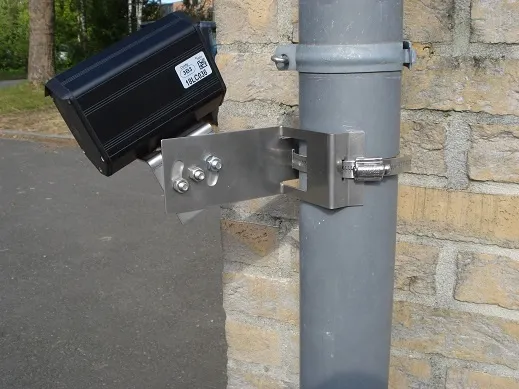Stationnement de Montreal, which manages parking for the City of Montreal, Canada, has announced a project with smart parking solutions provider Streetline, with the aim of reducing congestion and increasing parking availability ion the city.
Already deployed in more than 40 locations in both the US and Europe, Streetline's patented smart parking platform detects the presence of a car through a network of ultra-low power wireless sensors located in the pavement of individual parking spaces. Data from th
March 19, 2014
Read time: 2 mins
Stationnement de Montreal, which manages parking for the City of Montreal, Canada, has announced a project with smart parking solutions provider 579 Streetline, with the aim of reducing congestion and increasing parking availability ion the city.
Already deployed in more than 40 locations in both the US and Europe, Streetline's patented smart parking platform detects the presence of a car through a network of ultra-low power wireless sensors located in the pavement of individual parking spaces. Data from these sensors is then made available to cities through a robust real-time and historical analytics application called ParkSight. The web app allows a city to view parking data on a 24x7x365 basis in order to assess parking asset utilisation and explore ways in which to optimize resource usage and management.
The Montreal project will focus on a busy shopping and restaurant area and Stationnement de Montreal hopes the parking data that the Streetline system captures will help the city administration better understand occupancy and turnover patterns and make data-driven policy decisions to alleviate the high congestion during peak hours.
"Capturing street level data on an ongoing basis is difficult but necessary to our parking operation," said Charles Auger, managing director of Stationnement de Montreal. "Now, with access to a new level of data and analytics with the Streetline system, we can make data-driven decisions to better utilise city resources and better serve the citizens of Montreal."
Already deployed in more than 40 locations in both the US and Europe, Streetline's patented smart parking platform detects the presence of a car through a network of ultra-low power wireless sensors located in the pavement of individual parking spaces. Data from these sensors is then made available to cities through a robust real-time and historical analytics application called ParkSight. The web app allows a city to view parking data on a 24x7x365 basis in order to assess parking asset utilisation and explore ways in which to optimize resource usage and management.
The Montreal project will focus on a busy shopping and restaurant area and Stationnement de Montreal hopes the parking data that the Streetline system captures will help the city administration better understand occupancy and turnover patterns and make data-driven policy decisions to alleviate the high congestion during peak hours.
"Capturing street level data on an ongoing basis is difficult but necessary to our parking operation," said Charles Auger, managing director of Stationnement de Montreal. "Now, with access to a new level of data and analytics with the Streetline system, we can make data-driven decisions to better utilise city resources and better serve the citizens of Montreal."









